

 |
 |
|
 |
|
| About Us |
|
Read Past Issues | Resources | Composer Links |
|

|
An Interview with Tobias Picker Handmaid Tale's Debuts in English Rautavaara Joins B&G Who's Afraid of Julia Wolfe Derek Bermel's Soul Garden The Pianist: The Extraordinary True Story of Wladyslaw Szpilman John Adams' Atomic Opera A Bridge Not Far Enough Turnage Signs With B&H Sophie's Wrong Choice Copland's Mexico On Being Arvo Rzewski Plays Rzewski Praising Lee Hyla David Lang's Passing Measures
|
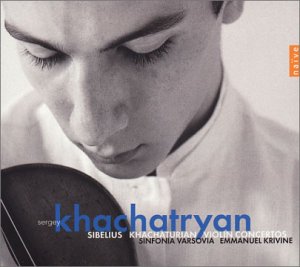
Violin Concertos Composers: Sibelius, Khachaturian Performers: Sinfonia Varsovia, Emmanuel Krivine Naive (Naxos) 18-year-old Armenian wunderkind tosses off the Sibelius with a dazzling display of sheer virtuosity and delivers a much deeper, more sober reading of his fellow countryman's bouncy masterpiece than we are accustomed to hearing. Eye-opening performance and a performer to watch.
|
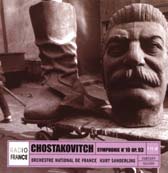
Symphony No. 10 Composer: Dmitri Shostakovich Kurt Sanderling (conductor) Orchestre National de France Naive (Naxos) Re-issue
of an inspired 1978
|

Seven: A Suite for Orchestra Composer: Tony Banks Performer: London Philharmonic Orchestra, Mike Dixon Naxos Tony
Banks, founder of the rock band Genesis, goes "classical" with this
seven-movement suite, each of them an orchestral sound picture using its
title to set the mood. The result is an extremely well-recorded bag
of ambiant musical noodles that are less frivelous than they might have
been and, in any event, less painful to the ears than listening to
Phil Collins sing.
|
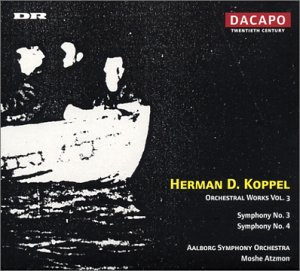
Symphony No. 3 Op. 39. Symphony No. 4 Op. 42 Composer: Herman D. Koppel Conductor: Moshe Atzmon, Aalborg Symphony Orchestra Da Capo [Naxos] During the German occupation of Denmark in World War II, Herman D. Koppel, who was Jewish, and his family had to flee to Sweden, where they met a childhood friend of Koppel who had become a baroness. In her house Koppel could compose in peace and quiet. The Third Symphony is dedicated to her. Despite his own safe surroundings, Koppel’s experience of the war, and of the execution of his Polish-Jewish family in German concentration camps, had a profound impact on his works from this period. These are works of anguish that explore the depths of the composer's emotions--a final liberation from the bloodless influence of his teacher Carl Neilsen--and the birth of major, overlooked 20th century music figure. |

Die Jakobsleiter Composer: Arnold Schoenberg, Henschel, Meier, Nagano Harmonia Mundi One of many important large-scale fragments left uncompleted by Schoenberg at his death, the oratorio Jacob's Ladder was finished by Winfried Zillig, once a student, at the behest of Schoenberg's widow after his death. Schoenberg wrote the libretto between 1915 and 1917 based on the book of Genesis, overlaid with elements from Strindberg's drama Jacob Wrestles, and Balzac's novel Seraphita. He wrote a large of chunk of the music shortly after but was called to the army and never got around to finishing it. This is a brilliant, committed performance that captures a little-known masterpiece by one of the 20th century's greatest composers at the height of his creative powers. |
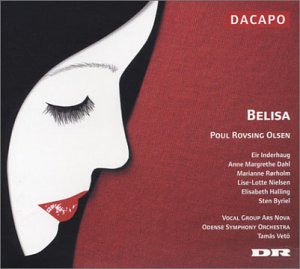
Belisa Composer: Poul Rovsing Olsen Performer(s): Inderhaug, Byriel, Rorholm, Veto Da Capo [Naxos] When composing his music for Belisa, Poul Rovsing Olsen was deeply inspired by Spanish poet Federico García Lorca's drama and by the passionate and demanding character of Belisa herself. The opening scene of the opera is the wedding night of Belisa and Don Perlimplin, where the young bride takes 5 lovers in front of her decrepit groom that is sound asleep. The drama develops from stylized opera buffa into the ambiguous and surreal with an unexpected ending, and Poul Rovsing Olsen's music reflects Lorca’s drama like a sensuous kaleidoscope with French and Oriental overtones. |
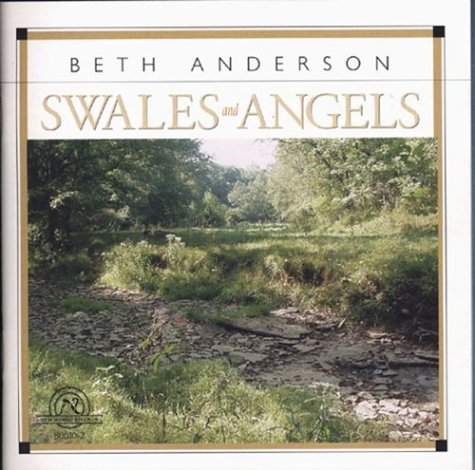
Swales and Angels Composer: Beth Anderson Conductor: Gary M. Schneider Performer: Rubio String Quartet, Jessica Marsten (soprano), et al. New World Records Beth
Anderson's unabashedly romantic "swales" are as pure as a Kentucky mountain
spring, frisky as a new-born colt rolling in bluegrass, and infectious
as a third-grade measles outbreak. They are light, without being
lightweight, and conquer the ear by their deceptively easygoing charm.
If you like Paul Schoenfeld's brand of Americana, you'll like these pieces
a lot.
|
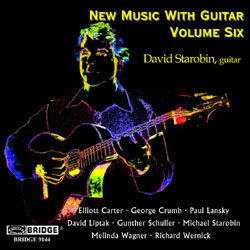
New Music With Guitar, Volume Six Composers: Various Performer: David Starobin Bridge Records No one has done more to champion guitar music by contemporary composers than the brilliant guitarist and co-founder of Bridge Records, David Starobin. This CD includes solo and chamber works written between 1992 and 2000 by Gunther Schuller, Michael Starobin, Richard Wernick, Melinda Wagner, David Liptak, and Paul Lansky--all in premiere recordings. Volume Six also contains George Crumb's "Mundus Canis"--with the composer performing (and whispering and yelling) on percussion. To conclude the disc, Elliott Carter's fantastically inventive sextet, "Luimen" is performed by Speculum Musicae, New York City's virtuoso new music band. |
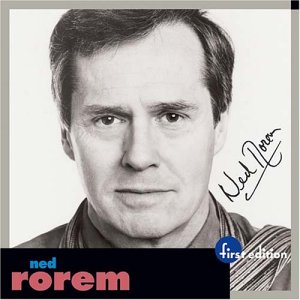
11 Studies for 11 Players: Piano Concerto Composer: Ned Rorem Performer(s): , Lowenthal, Mester, Louisville Orchestra First Edition Rorem ages well and a recent spate of re-releases of his early chamber and orchestral works demonstrate that he is a good deal more than simply a master of art songs. Like most of Rorem's work, 11 Studies is distinctly more European than American and recall Berio's marvelous Sequenzas. |
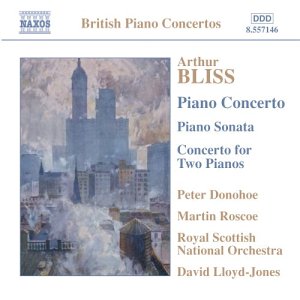
Piano Concerto. Concerto for two pianos. Piano Sonata Composer: Arthur Bliss Performers: . Peter Donohoe, Martin Roscoe (pianos), Royal Scottish National Orchestra, David Lloyd-Jones (conductor). Naxos The piano concerto is rip-snorting, full-blooded, heavy breathing romantism of the Rachmaninov variety played with over-the-top virtuosity by the nimble Peter Donohoe. Listening to it makes you want to invade Russia. |
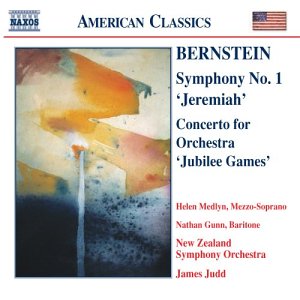
Symphony No.1, 'Jeremiah'. Jubilee Games Composer: Leonard Bernstein Performers: Helen Medlyn (mezzo), Nathan Gunn (baritone), New Zealand Symphony Orchestra, James Judd (conductor). Naxos Young Bernstein, filled with piss and vinegar and more musical ideas per page than any eight of his contemporaries. A joy to listen to a genius in the process of finding his compositional voice. |
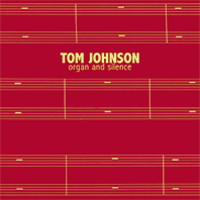
Organ and Silence Composer: Tom Johnson Performer: Wesley Roberts, organ A collection of 28 organ pieces to be played separately or as a long recital A music concerned for, as the author writes in the disc notes, "… the importance of silence in music…". This work is conceived not "for organ" but, really, for "organ and silence", as the silence is a fundamental part of it, and it’s not possible to give it up. It’s an attempt, as the author explain " to permit as much silence as possible, without allowing the music to actually stop". Tom Johnson is one of the masters of minimalism, but he combines this with rigorous logic. His work, free from false glitters, defines, better that any other one, the sense of a research the goes beyond the strict genre definitions, and become poetic application of original ideas. |

Trans Composer: Lee Hyla Conductor: Gil Rose Performer: Laura Frautschi, Tim Smith New World Records A rare opportunity to hear several of the major symphonic works of a true American original. Hyla happily mingles expressionistic, complex contemporary atonal idioms with elements of avant-garde jazz, and rock and garage band with results that cannot be anticipated. His honking, strongly articulated rhythms mask an inner beauty that almost always seems ready to burst into radiant sunshine. The three works on this disc—Concerto for Bass Clarinet and Orchestra (1988), Trans (1996), and the Violin Concerto (2001)—show Hyla at peak form, with stunning performances by Gil Rose and the Boston Modern Orchestra Project.
|
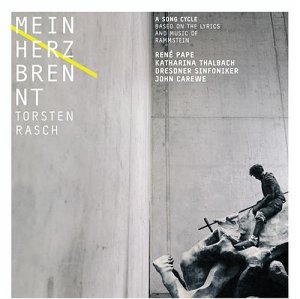
Mein Herz Brennt Composer: Torsten Rasch Performer(s): Rene Pape, Katharina Thalbach, Dresdner Sinfoniker Deutsche Grammophon The best part of this odd little exercise is the sensational baritone Rene Pape, who sings these re-set songs by the German punk rock group, Rammstein, as if they were written by Mahler, on a good day. |
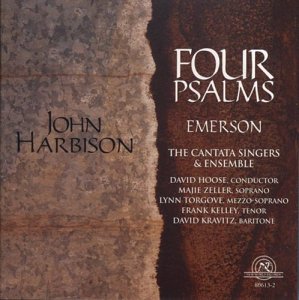
Four Psalms, Emerson Composer: John Harbison Performers: The Cantata Singers & Ensemble New World Records This is the first recording of one of John Harbison’s most important works, Four Psalms, which was commissioned to celebrate the fiftieth anniversary of the founding of the state of Israel. The composer describes Four Psalms as follows: "[It] opens with a prelude for mezzo-soprano and orchestra, a prayer composed by Amemar in 454 A.D., which states the major themes of the piece, both musical and philosophical … There follow four psalms, in Hebrew, alternating with the voices, in English, of people now living. The psalm settings employ fully developed forms—march, antiphon, passacaglia, and aria—suggested by the majesty and mystery of the Hebrew language. In contrast, the contemporary voices are set within brief inventions, their form echoing the momentary illuminations granted to those reflecting upon their own time." The other work, Emerson, is an a cappella setting of an extract from Emerson’s philosophical prose. Stunning performances and a must-have disk. |
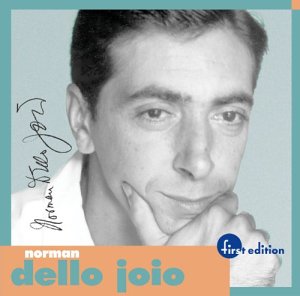
Homage to Haydn / Triumph of St Joan Composer: Norman Dello Joio Performer(s): Slatkin, Louisville Orch First Edition American composer Norman Dello Joio turned 91 in January and this re-issue of two of his significant works shows that his music is wearing well. Perhaps, a little too neo-classic or "accessible" for some modern sensibilities, Dello Joio's unique compositional fusion of American popular music, jazz, Italian opera and the liturgical music of the Catholic church has an elegance that transcends the label of easy listening. Two wonderful works by Dello Joio are featured on this First Edition release: the stirring, widely acclaimed Louisville Orchestra commission, Triumph of St. Joan Symphony, which debuted with Martha Graham as dance soloist, and his Homage to Haydn, an jubilant tribute that reflects Dello Joio’s studies with Paul Hindemith. |
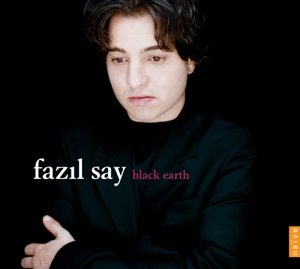
Black Earth Composer: Fazýl Say Conductor: Muhai Tang, Eliahu Inbal Performer: Fazil Say, Laurent Korcia Naive The Turkish pianist Fazýl Say has built a formidable reputation for himself through a string of first-rate recordings of Mozart, Bach, Gershwin and Stravinsky. This time around, Say demonstrates that he is also a composer of considerable talent. The title piece, Black Earth for solo piano, is based on a Turkish folksong, in which Say, evoking the saz, a Turkish traditional instrument, simultaneously plays the keys and the strings inside the piano, producing an otherworldly sound. Say's compositions are hardly classical--more like Keith Jarrett with a dynamite hook-- but these are daring and exciting performances. |
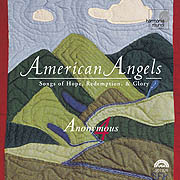
American Angels Performer(s): Anonymous 4 Harmonia Mundi Franc Anonymous 4 turns from the medieval repertoire to explore the roots of American sacred music. Developed in Toni Morrison’s Atelier program at Princeton in spring 2003, American Angels includes songs of redemption and glory from the time of the American Revolution to the present day: 18th-century psalm settings from rural New England, 19th-century shape-note and camp revival songs from the rural South, and some of the nation’s best-loved gospel songs. Drawing from collections including “The Southern Harmony,” and “The Sacred Harp,” - the album explores the beauty and power of early American sacred music and the relatively obscure form of a cappella choral singing known as Sacred Harp. |

Violin Concerto Composer: Khachaturian, Performer(s): Mihaela Martin, Kuchar, Nat'l So Ukraine Naxos It takes a lot of virtuosity to keep Khachaturian's demanding Violin Concerto afloat and the Romanian violinist, Mihaela Martin, does a masterful job. Her version is less daring, say, than that of, David Oistrakh, to whom the piece is dedicated, but she skillfully navigates the bristling outer movements and pours her soul into the elegaic central movement. Among recent versions this holds it own with the very best.
|
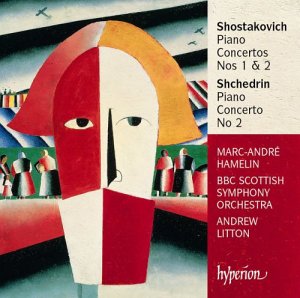
Shostakovich Piano Concerti Nos. 1 & 2 Shchedrin Piano Concerto No. 2 Marc-André Hamelin (piano), BBC Scottish Symphony Orchestra, Andrew Litton Hyperion Marc-Andre Hamelin makes child's play of these two very different piano masterpieces of Shostakovich. Fabulously accompanied by the BBC Scottish Symphony, led by Andrew Litton, Hamelin provides not simply his usual technical brillance but also a feeling for the material that sounds--to this listener--definitive. The Shchedrin concerto, though less well-known, is no less enjoyable. |
 |
Search WWWSearch www.sequenza21.com |
